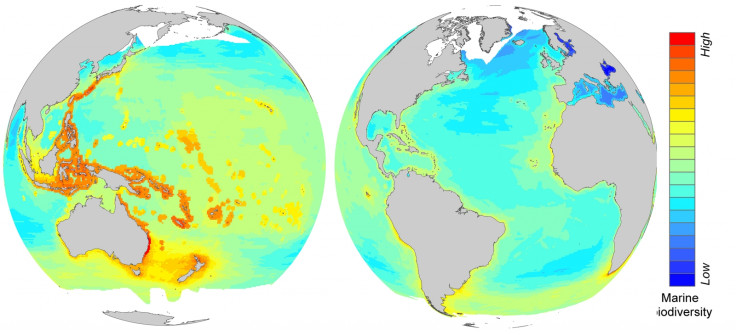Six biodiversity hotspots claimed to be on brink of ecosystem collapse
Results have been questioned for using out-of-date data.
A study has claimed to identify the six marine biodiversity hotspots that are the most at risk of ecosystem collapse in the world due to climate change and overfishing, but the validity of the study has been questioned.
The study uses data on 2,183 marine species, including fish, marine mammals and seabirds, to identify the most diverse areas of the oceans, sea surface temperature data from the past 30 years and fishing data from the past 60 years.
By combining the historic data with information on the species' numbers and whereabouts, the study authors make a link between the most biodiversity-rich areas and the places where climate change is happening the fastest. The six top biodiversity hotspots are also those at the greatest risk of ecosystem collapse, due to climate change and overfishing, the authors say.
"Overall, these hotspots of marine biodiversity coincide with areas most severely affected by global warming," they write in the paper published in the journal Science Advances.

"In particular, these marine biodiversity hotspots have undergone local to regional increasing water temperatures, slowing current circulation, and decreasing primary productivity."
However, relying on historic data to predict future changes in ecosystems is a very limited technique, marine ecologist Ana Queirós of Plymouth Marine Laboratory, who was not involved in the study, told IBTimes UK. They also do not take a broad enough view of what climate change is, Queirós said, failing to include factors such as oxygen loss and acidification of the oceans.
"We have the effect of warming, but climate change is a wider process. When you compare these types of environmental change to numbers of species, it's a somewhat narrow view of climate change. This is a bit of a dated view of what climate change is."

This is not to say that some species, such as the African penguin, are indeed facing a combined threat of climate change and overfishing. Approaches using more recent data, and including modelling combined with experimental data, can help to get a better idea of the risk of ecosystem collapse.
"Observations only allow us to see the ocean as it has been and is now, not what it will look like as climate change unfolds," Queirós said. "These will be unprecedented conditions about which empirical observations tell us very little."
Study author Francisco Ramírez of Spanish National Research Council did not respond to a request for an interview.
© Copyright IBTimes 2025. All rights reserved.






















